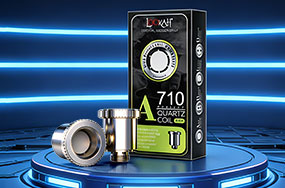On the 21st of April, the AHA announced almost $17 million in grants, as part of its ENACT: End Nicotine Addiction in Children and Teens research initiative. The study in Ohio will be led by Peter J. Mohler, vice dean of research at The Ohio State College of Medicine and director of the Dorothy M. Davis Heart and Lung Research Institute, and researchers from the Center for Tobacco Research at Ohio State’s Comprehensive Cancer Center.
They will be joined by colleagues from the colleges of Medicine, Nursing, Public Health and Engineering, to collaborate on the two-year project called VERIFY: Vaping’s End through Research and Innovation For Youth. “This study engages experts across our medical center and health sciences colleges collaborating together,” said Dr. Hal Paz, executive vice president and chancellor for Health Affairs at The Ohio State University and CEO of The Ohio State University Wexner Medical Center. “It’s vital to better understand what gets our youth addicted, the long term effects on the lungs and heart and which cessation efforts are most effective.”
The main objectives of the study are:
To determine the short- and long-term effects of e-cigarettes, including their impact on the brain, lungs and heart;
Explore the most effective regulations to reduce the appeal and addictiveness of e-cigarettes for youth
Finding the best methods to help youth kick their addiction to e-cigarettes.
“We’re pleased to receive this grant that will allow us to continue our work examining the health impacts of e-cigarettes and vaping. E-cigarettes are now the most commonly used tobacco product among youth, and there needs to be more research on youth e-cigarette use and addiction and ways to help users quit,” said Mohler.
Researchers at Boston University and Yale University have received similar funding. The AHA said that these grants are among the highest individual grants awarded in its history.
Flawed Vaping Study Retracted
In other news, last February the Journal of the AHA was forced to retract a study published in June 2019, which made headlines by linking vaping to heart attacks.
The study titled, “Electronic Cigarette Use and Myocardial Infarction Among Adults in the US Population Assessment of Tobacco and Health,” was published in the Journal in June 2019. The cross-sectional study used data from the baseline survey of the Population Assessment of Tobacco and Health (PATH) collected in 2013-2014, to look for a relationship between e-cig use and heart attacks.
However it was pointed out that drawing a causal conclusion from a cross-sectional study is flawed as there is no way to know which came first: the vaping or the heart attack. To this effect, the AHA Journal asked the study authors to provide additional analysis and when they failed to do so the journal decided to retract the study.
Vapesourcing Opinion:
Whether the smoking or vaping, are not beneficial for teenagers. We do not recommend nicotine for teens.
High-quality vape, we recommend smok novo 2, uwell caliburn koko











































































comments